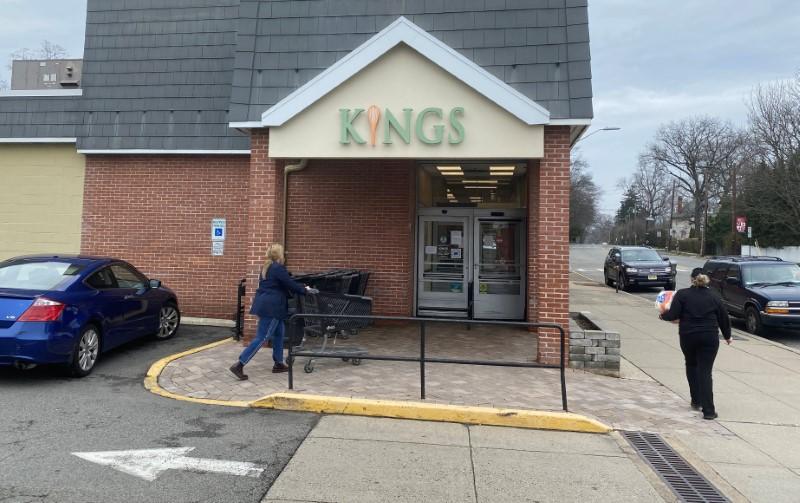(Reuters) – For Philip, a grocery store clerk, it’s not a matter of if he gets coronavirus, but when.
Shoppers enter a Kings Food Market in Montclair, New Jersey, where the CEO is looking to add new staff across a number of positions in the stores due to the coronavirus disease (COVID-19) cases across the country March 20, 2020. REUTERS/Edward Tobin
He is among millions of supermarket employees who have been classified as critical U.S. workers at “essential businesses” that will stay open to prevent disruption in food supply.
While other workers are being told to stay home to slow the spread of the coronavirus, these employees are being asked to put themselves in constant contact with the public.
Coronavirus cases are beginning to appear among them. Whole Foods Market (AMZN.O) on Thursday reported a positive case in a New York City worker.
California late on Thursday issued an unprecedented statewide “stay at home order” directing the state’s 40 million residents to hunker down in their homes for the foreseeable future.
Grocery stores, along with pharmacies, banks and gas stations, will remain open under the order.
Working low-paying jobs, these unlikely heroes in the produce section and behind the meat counter are both terrified and gratified to be on the fron

